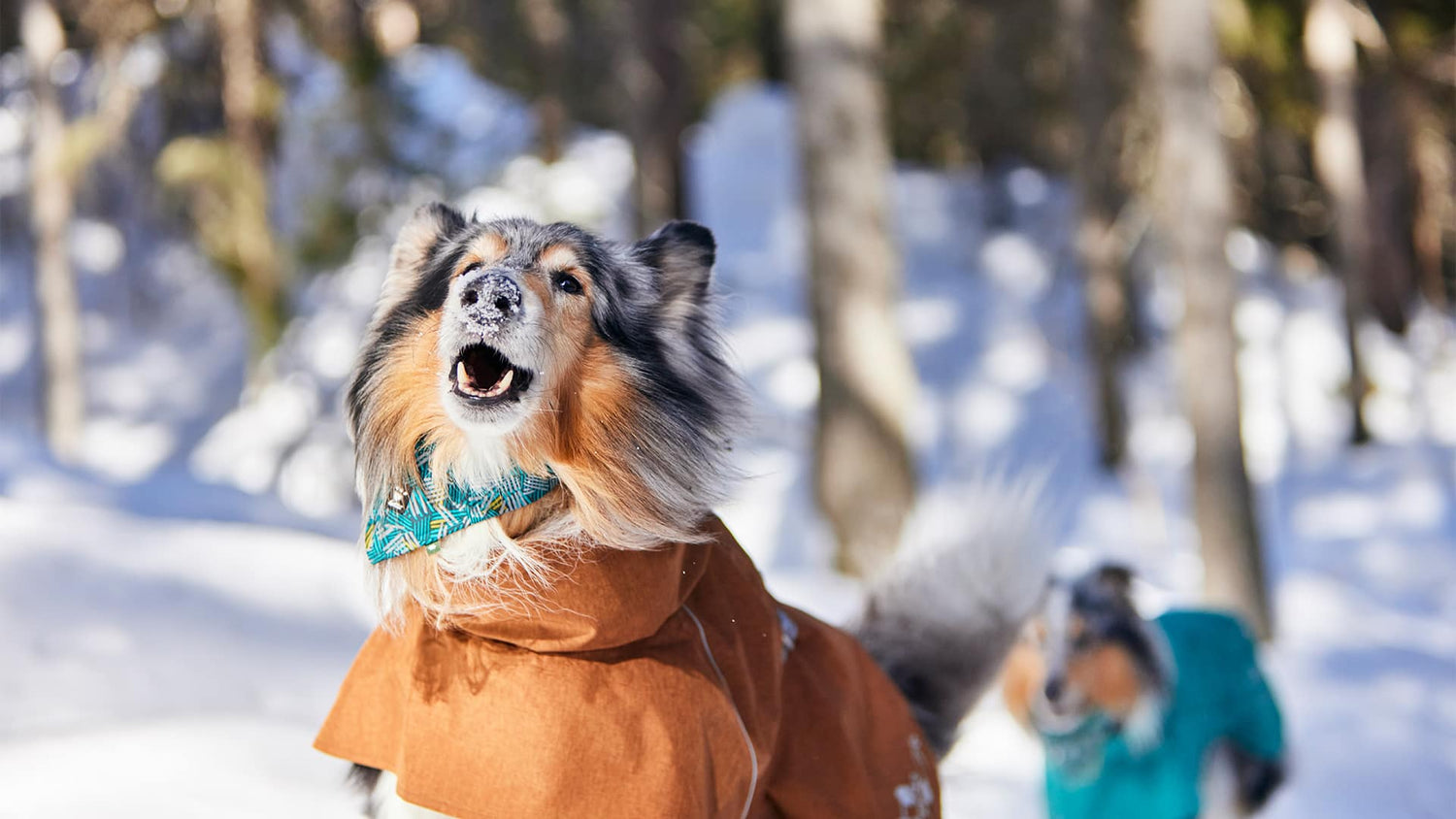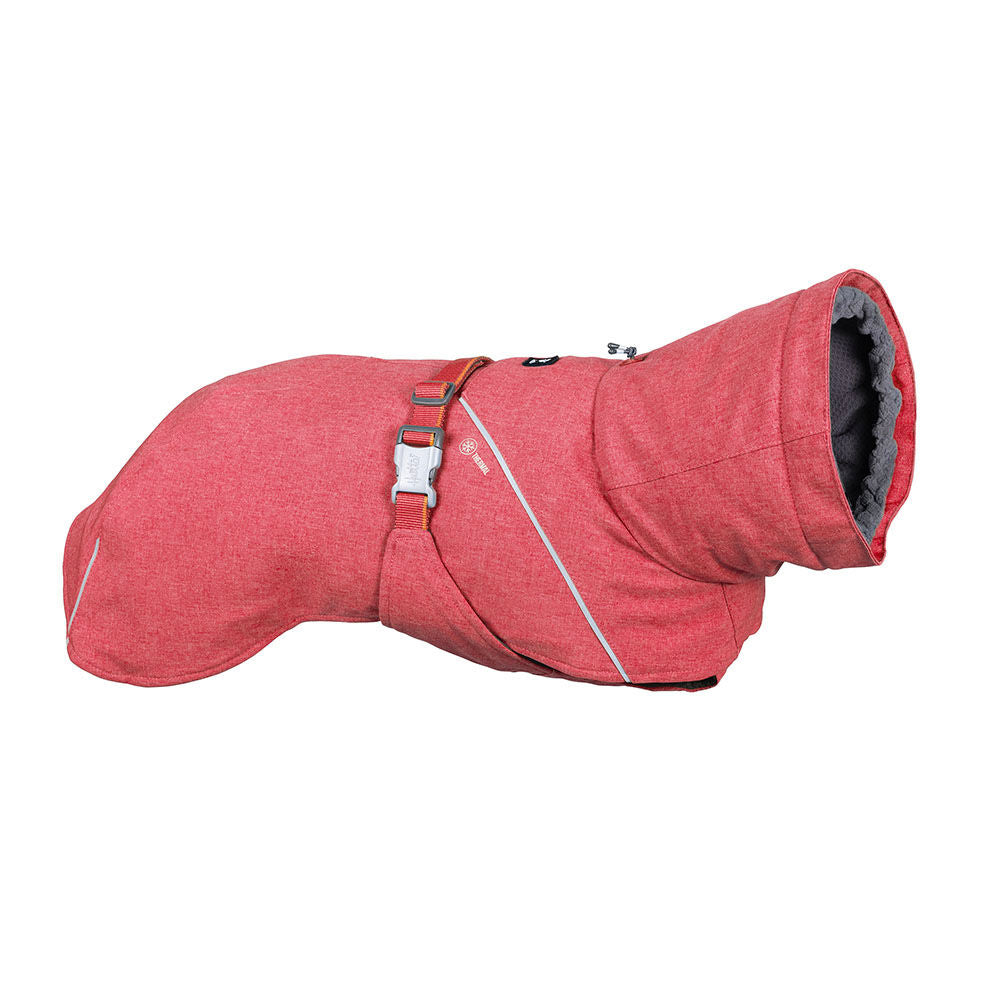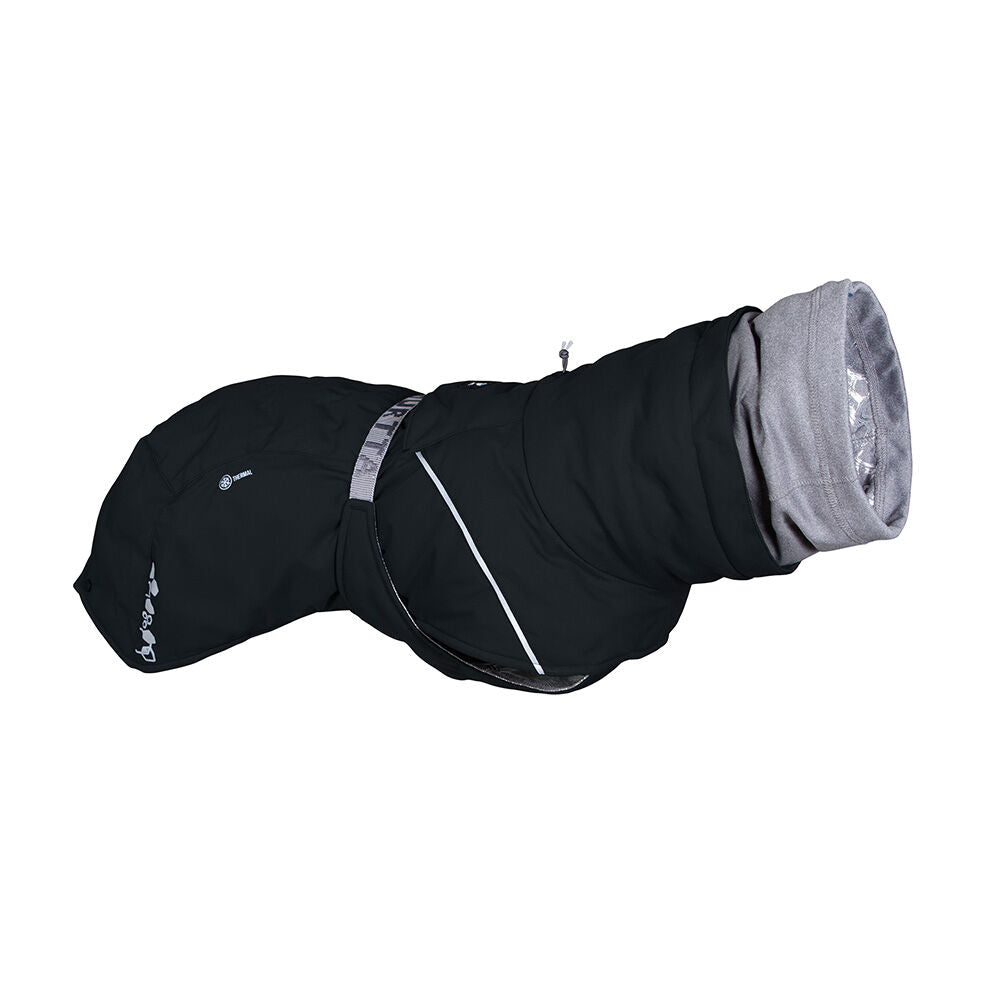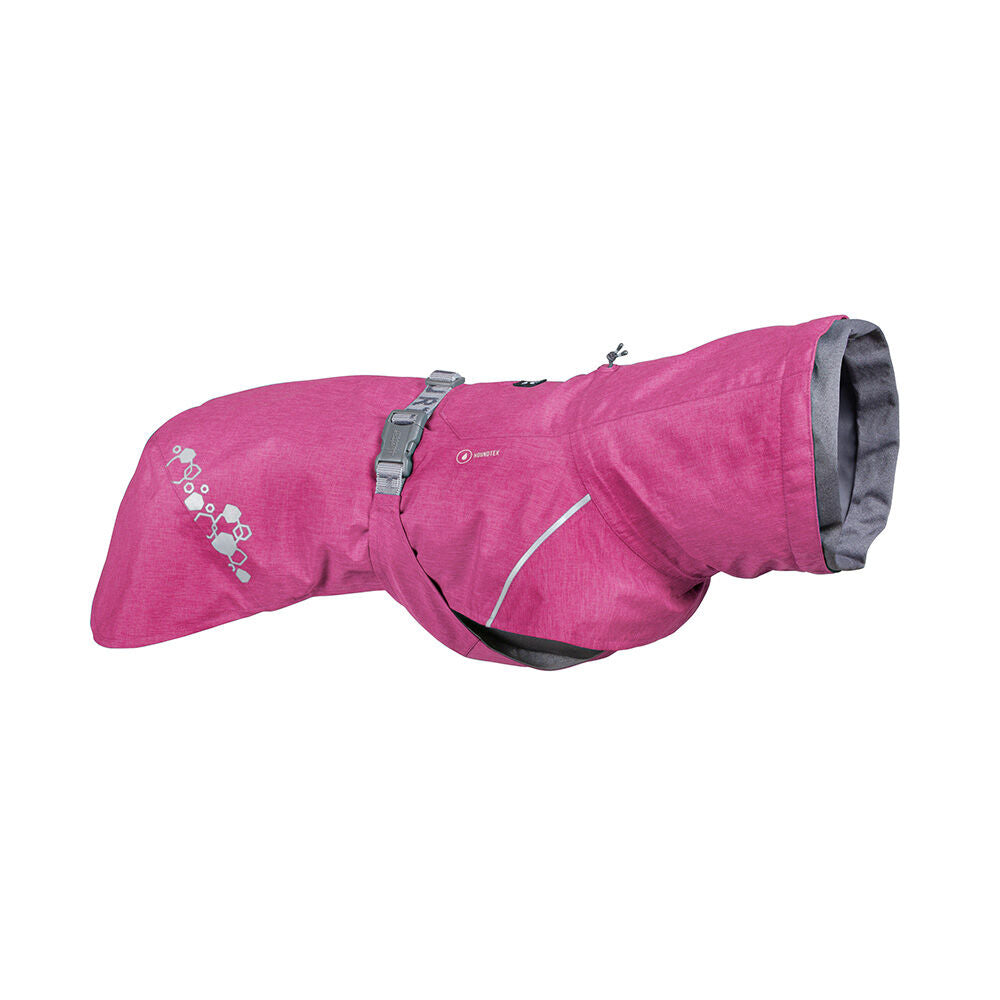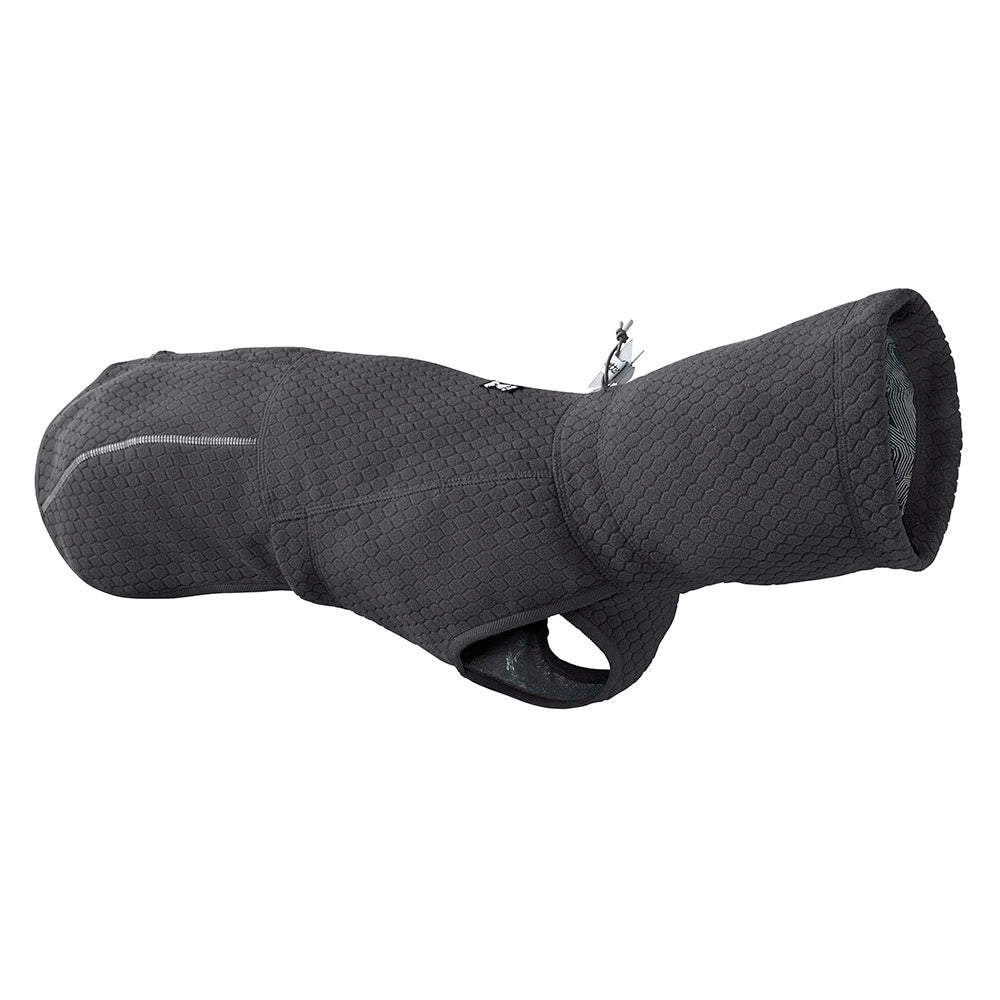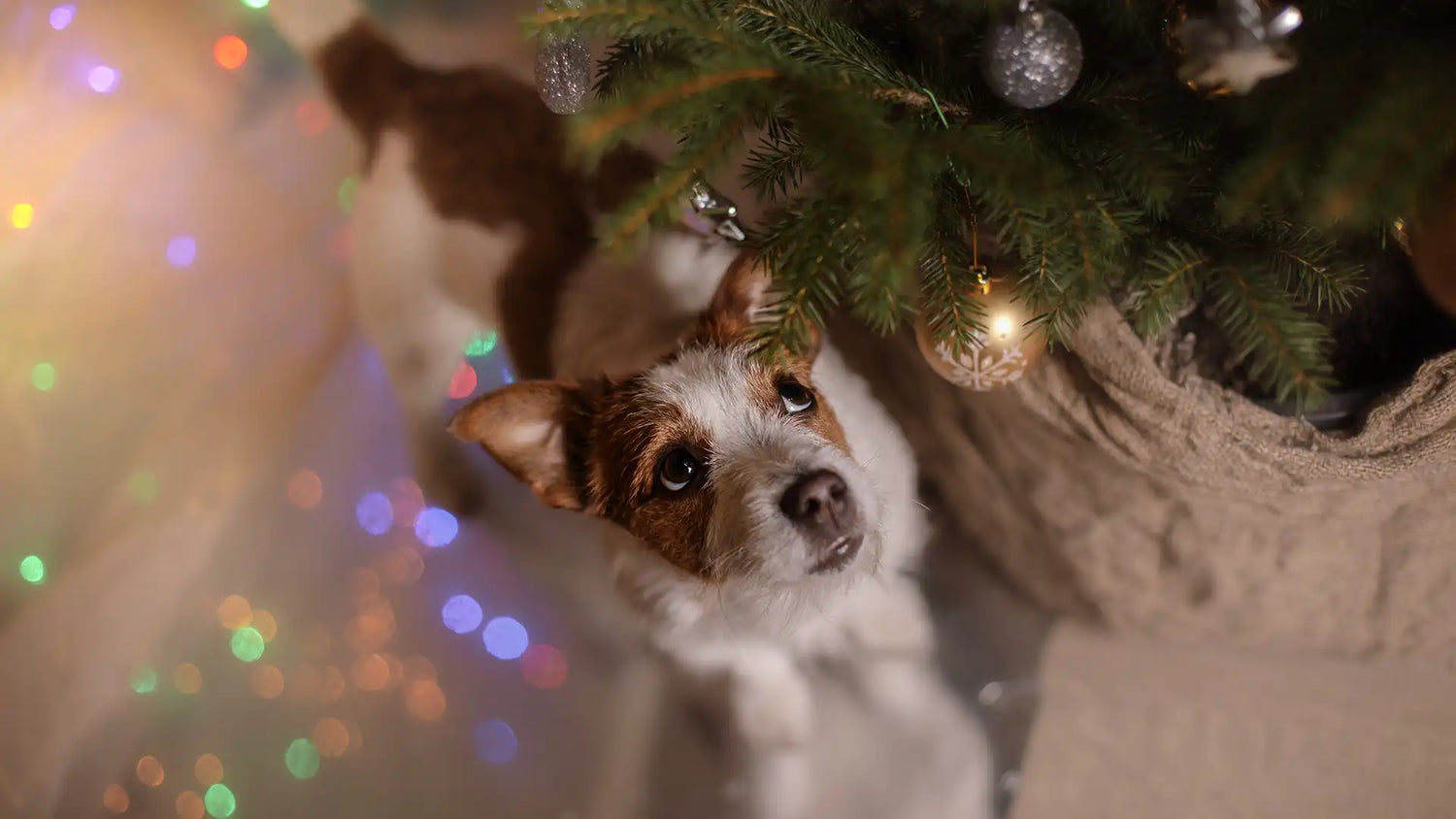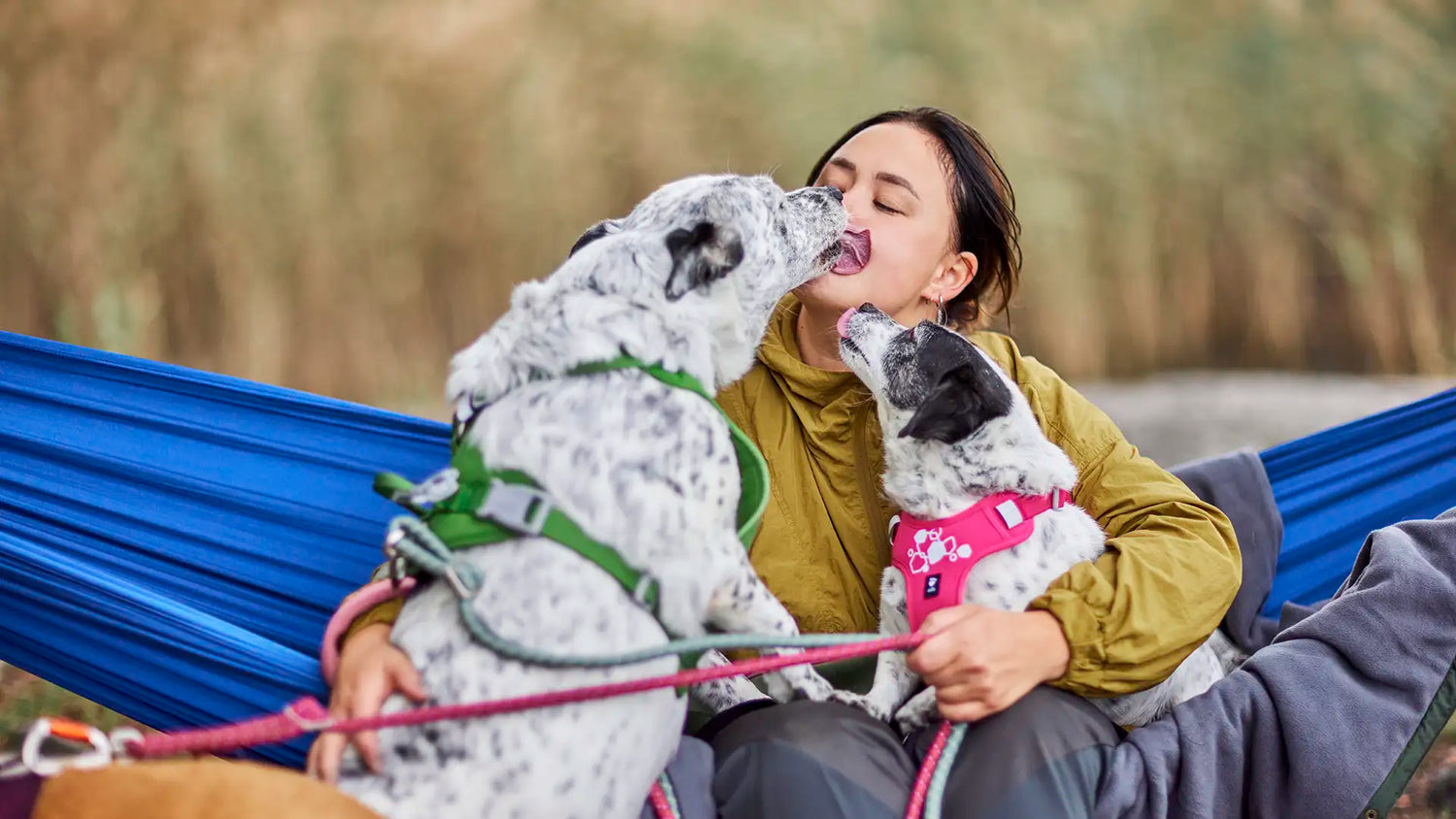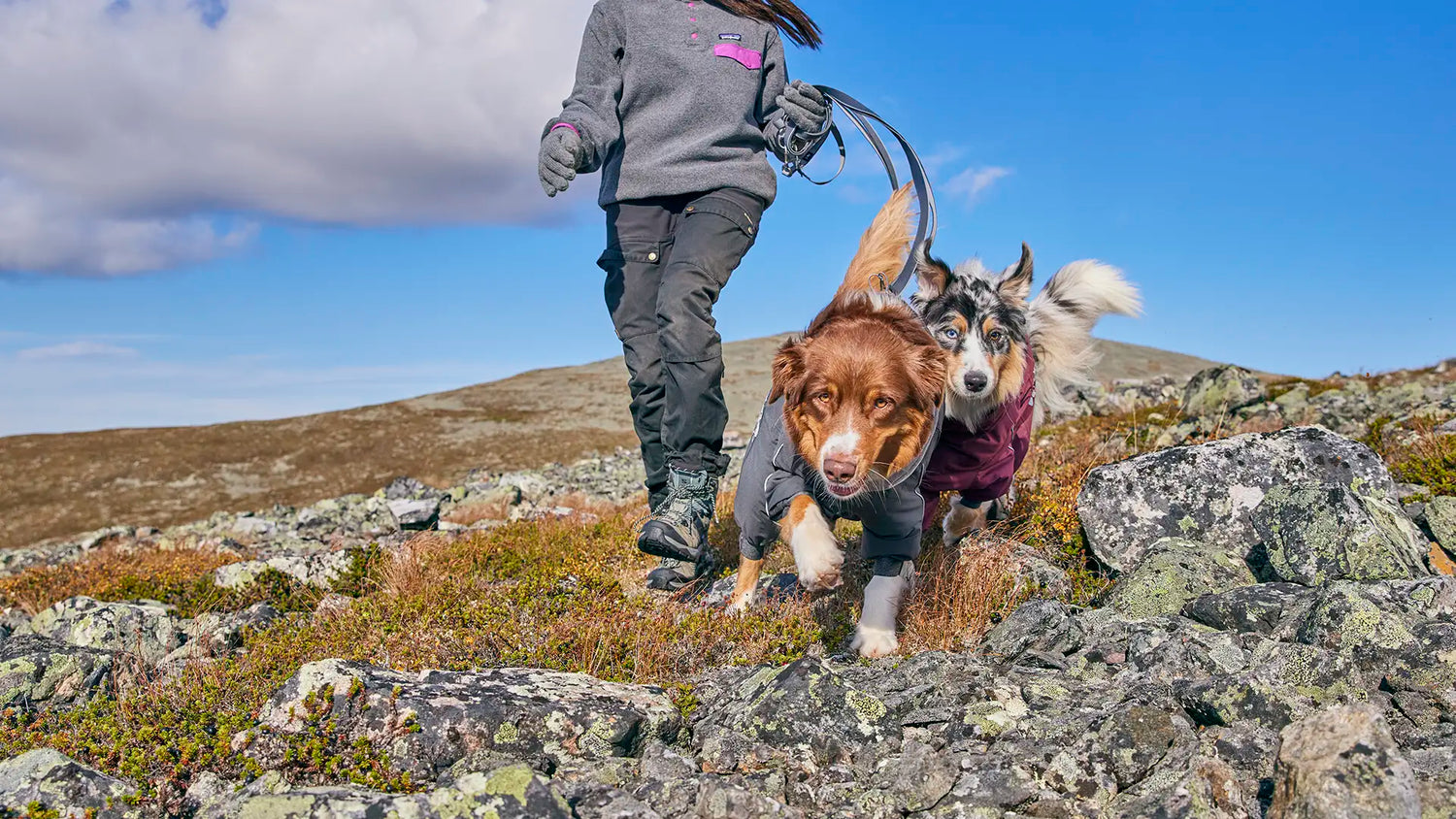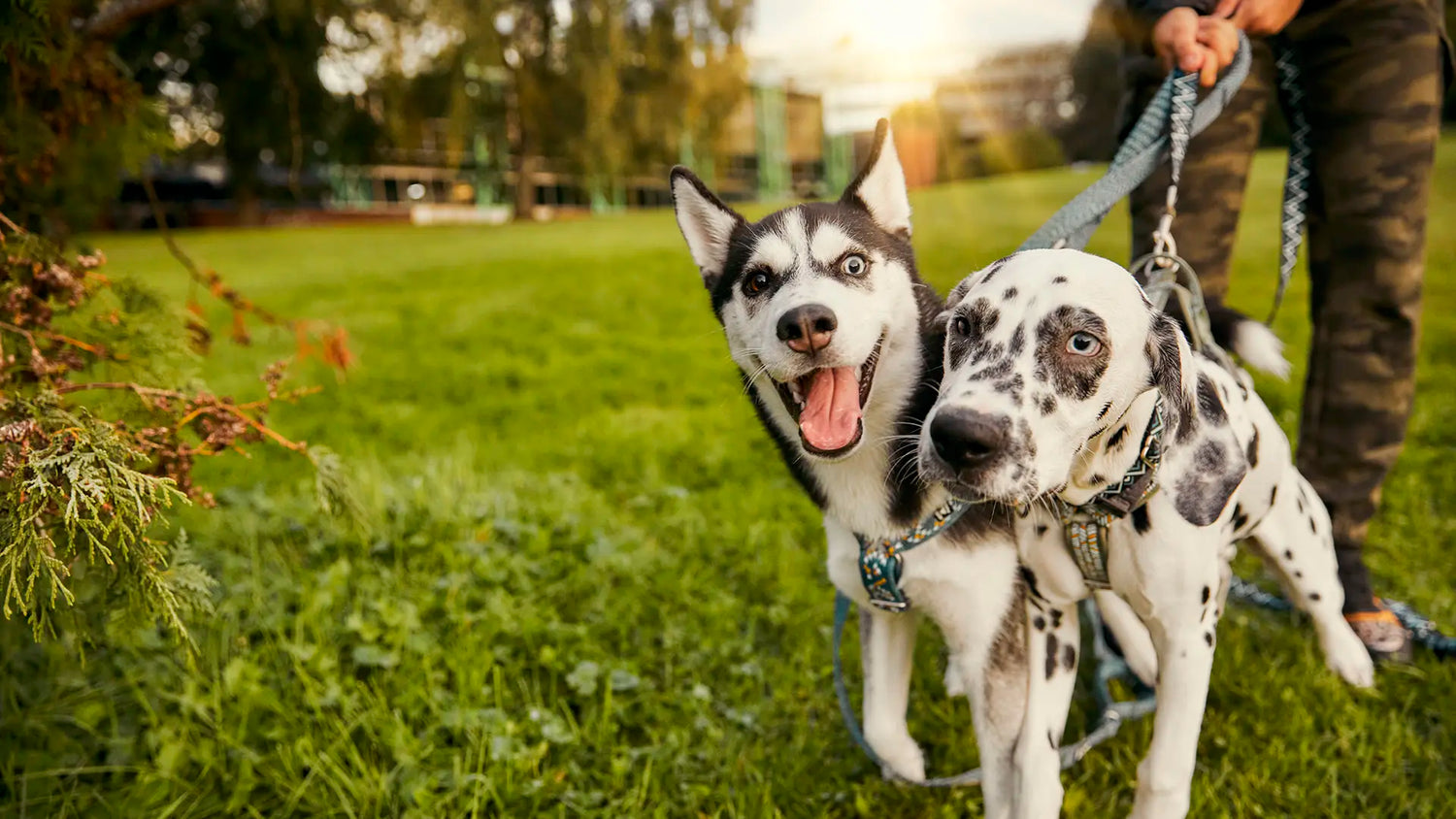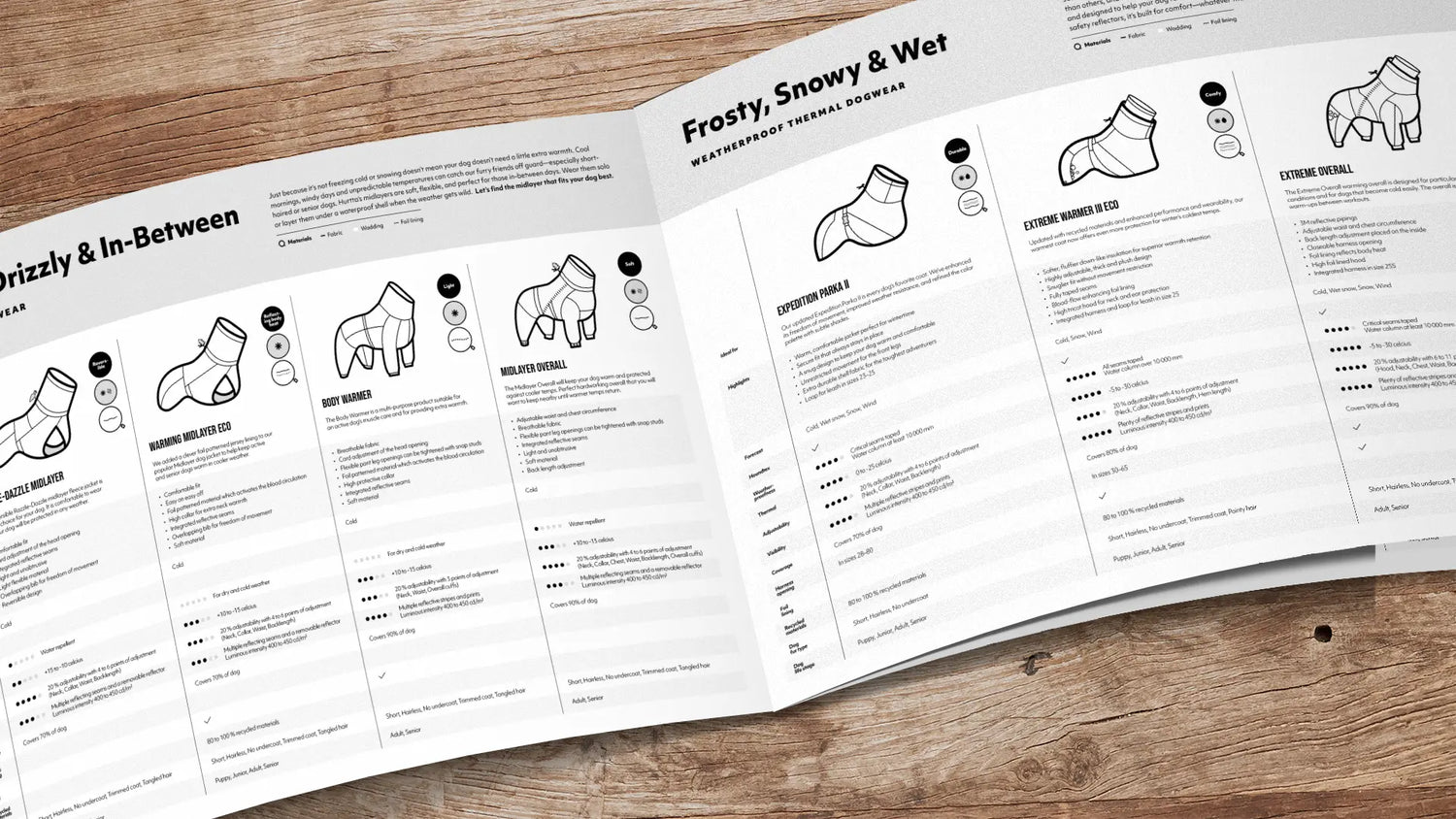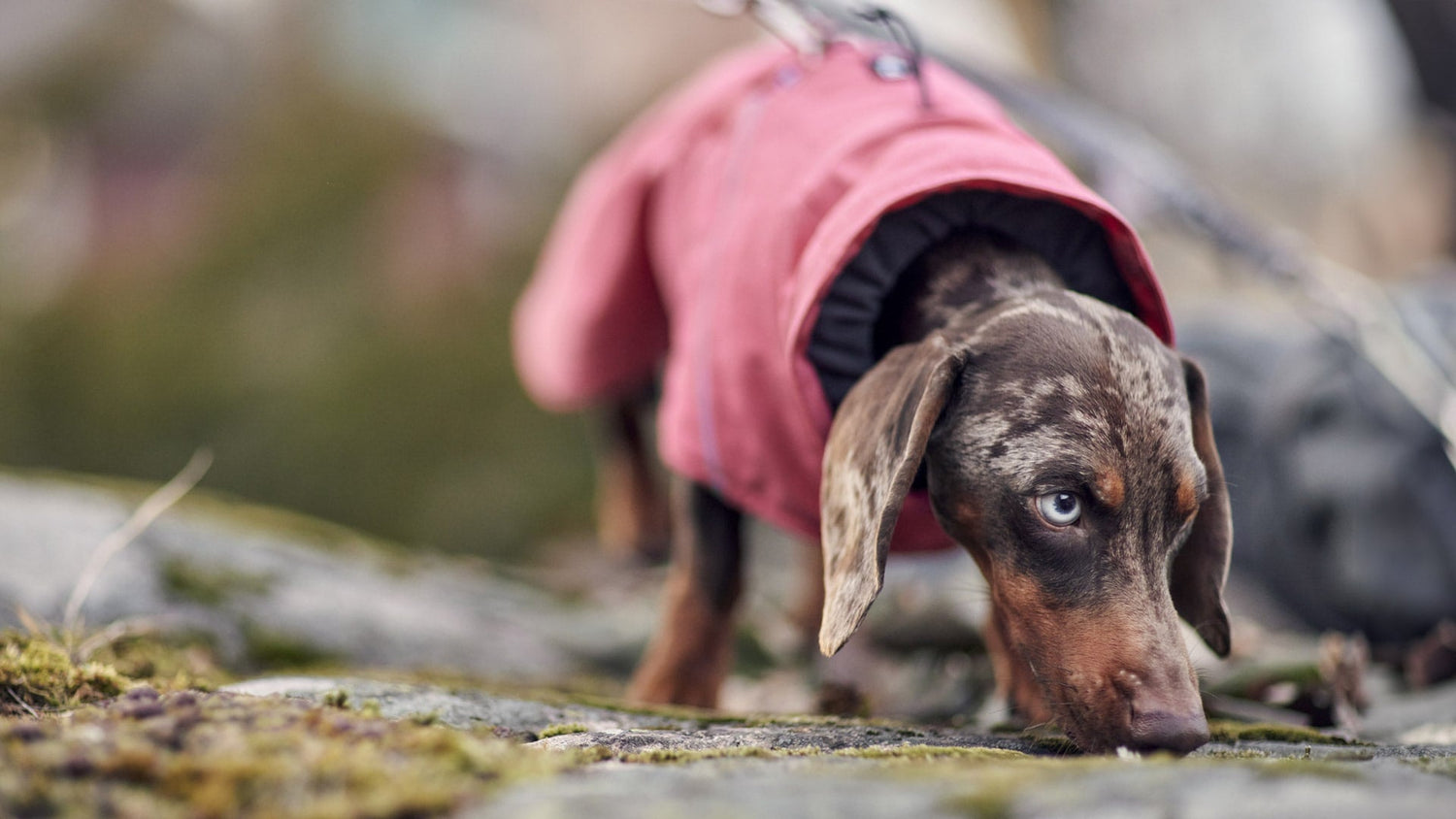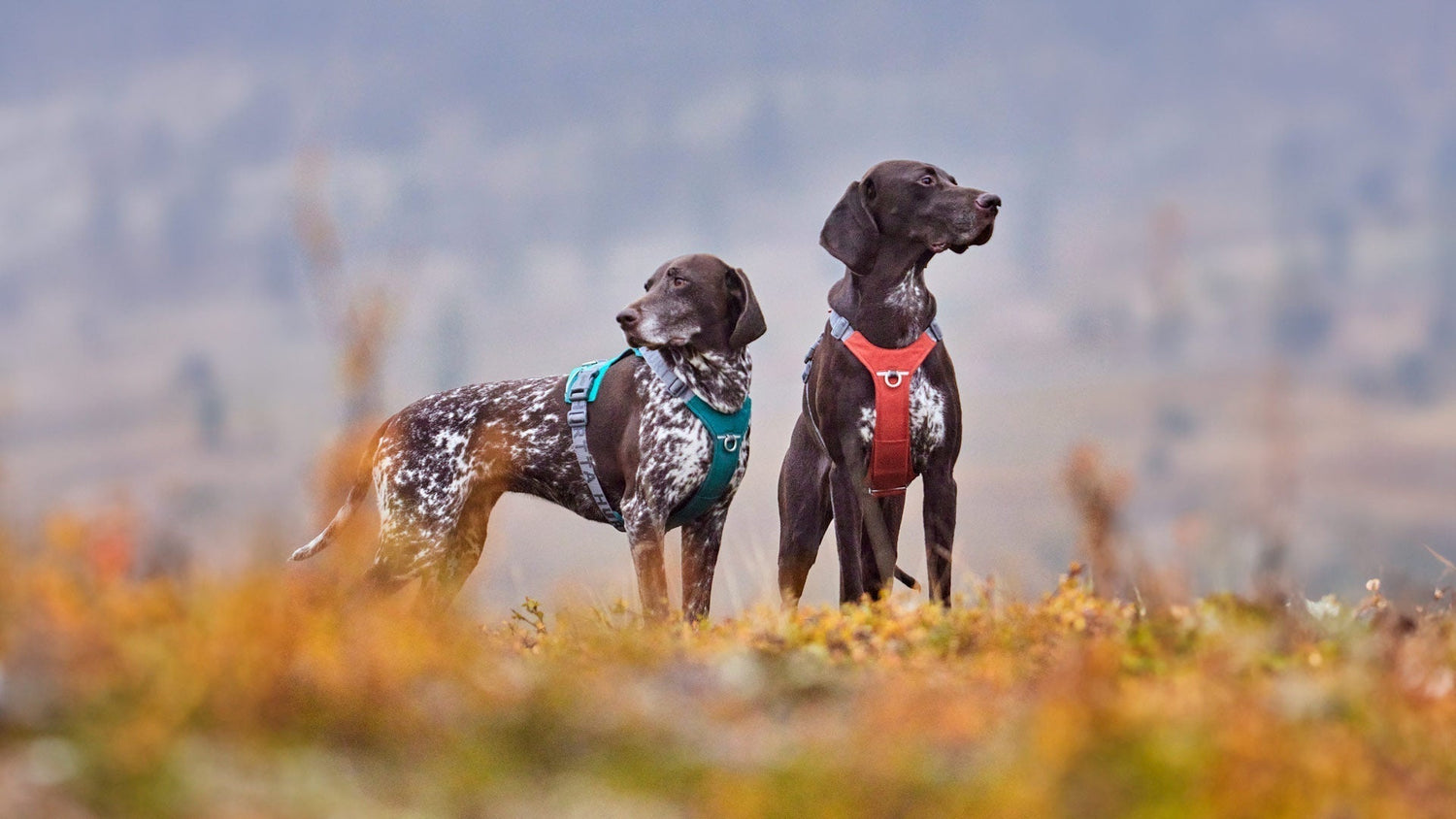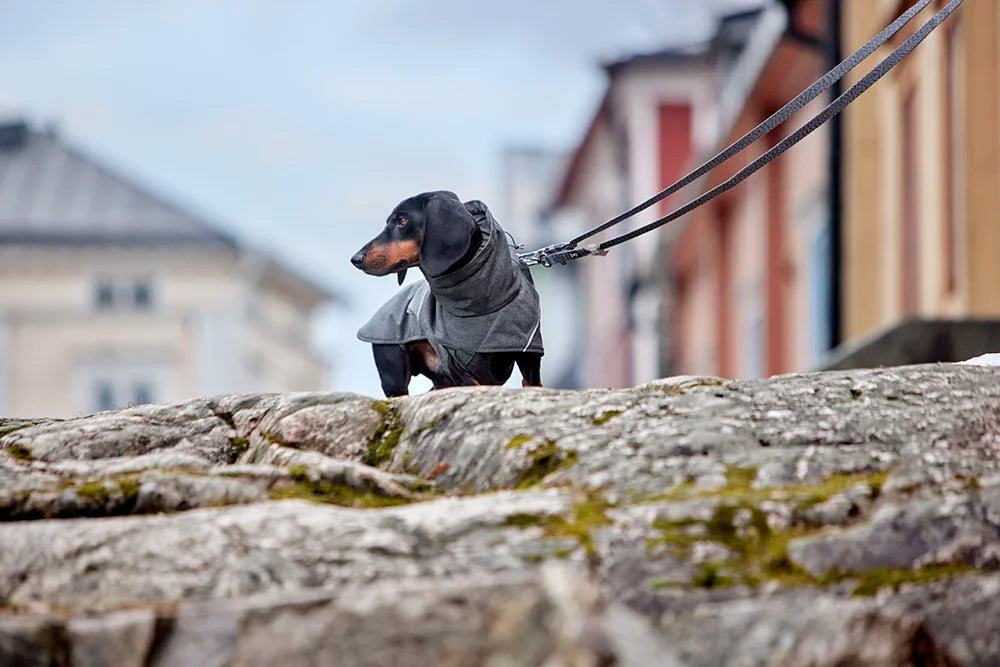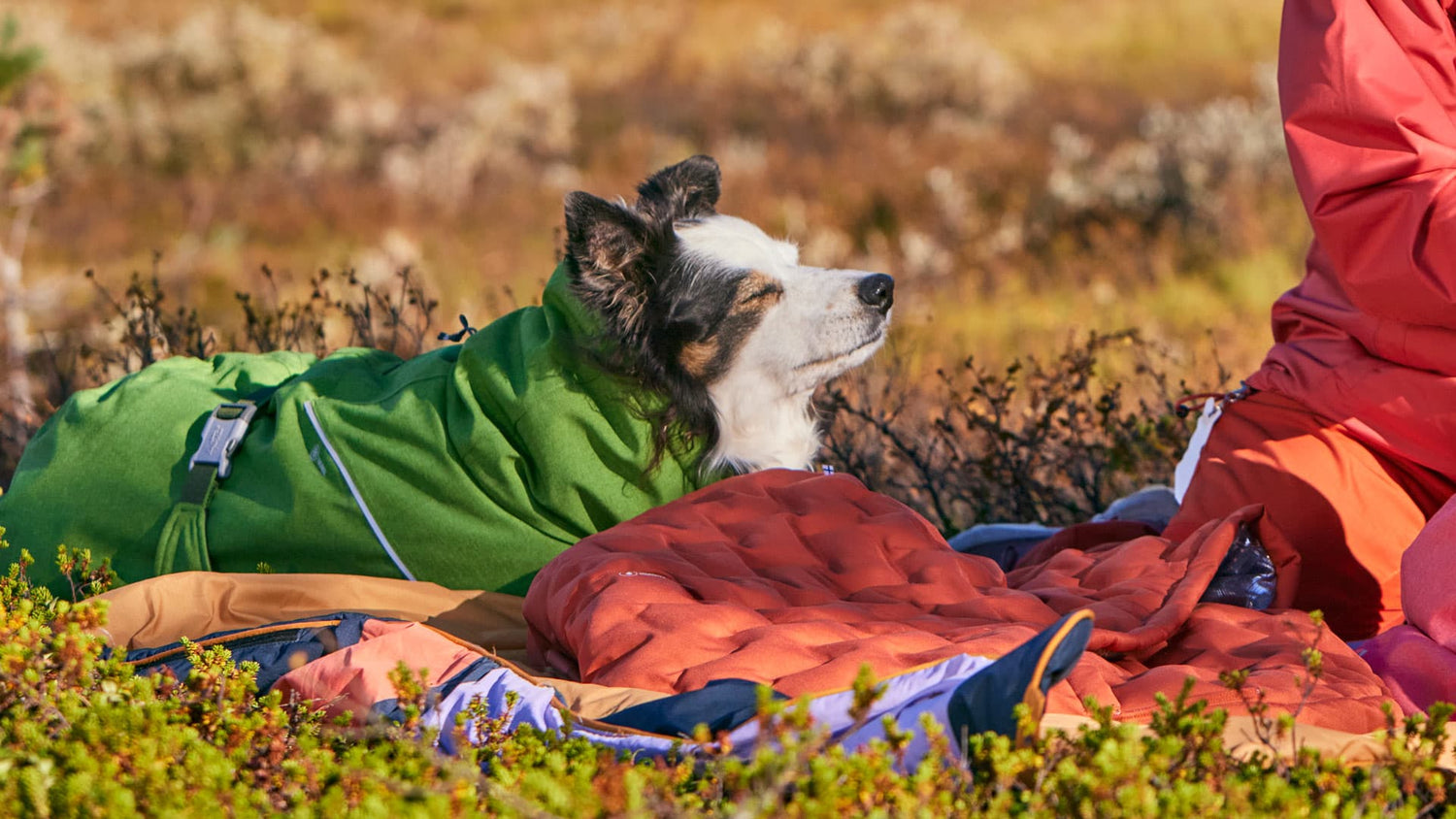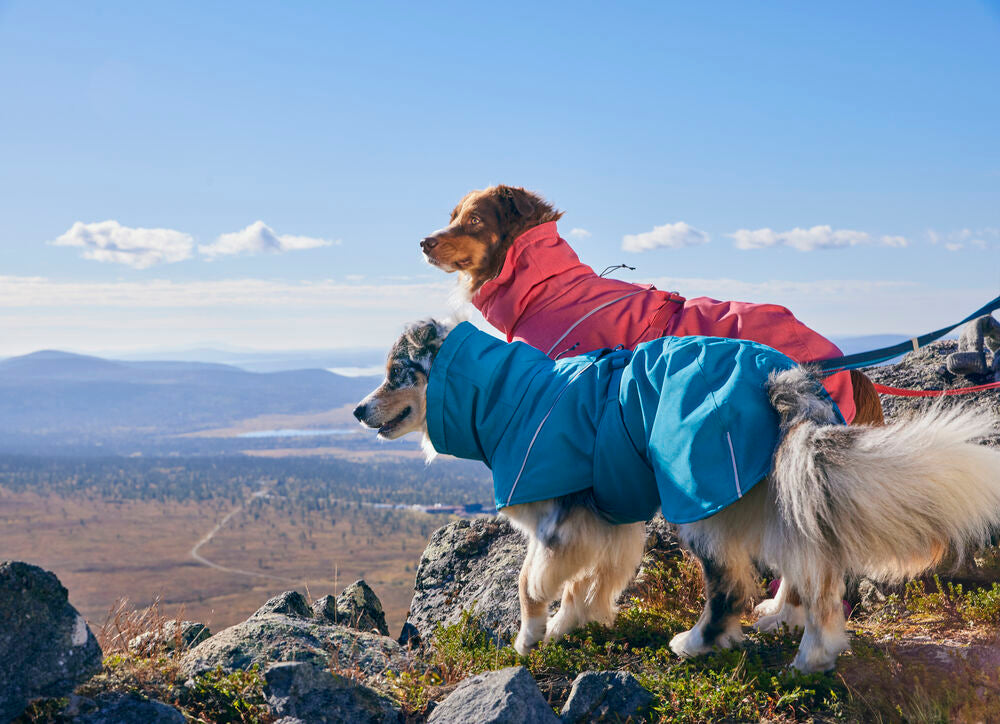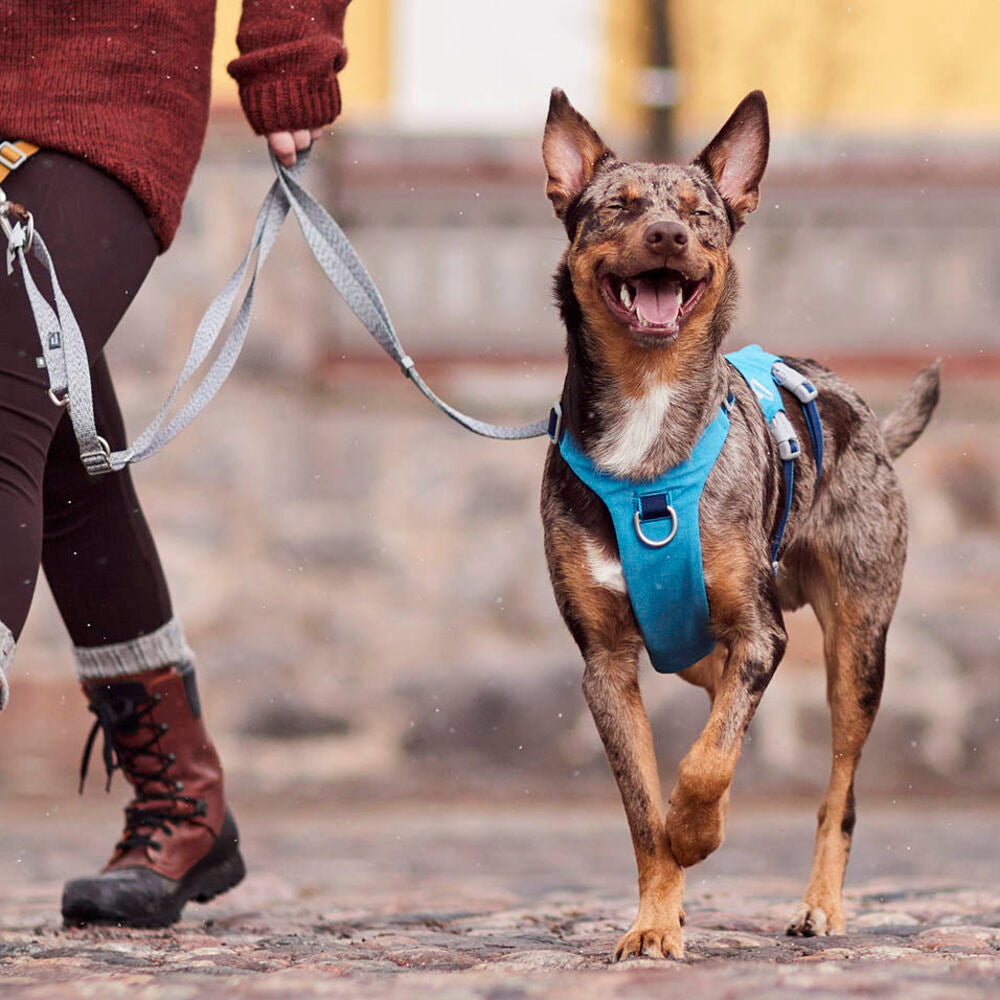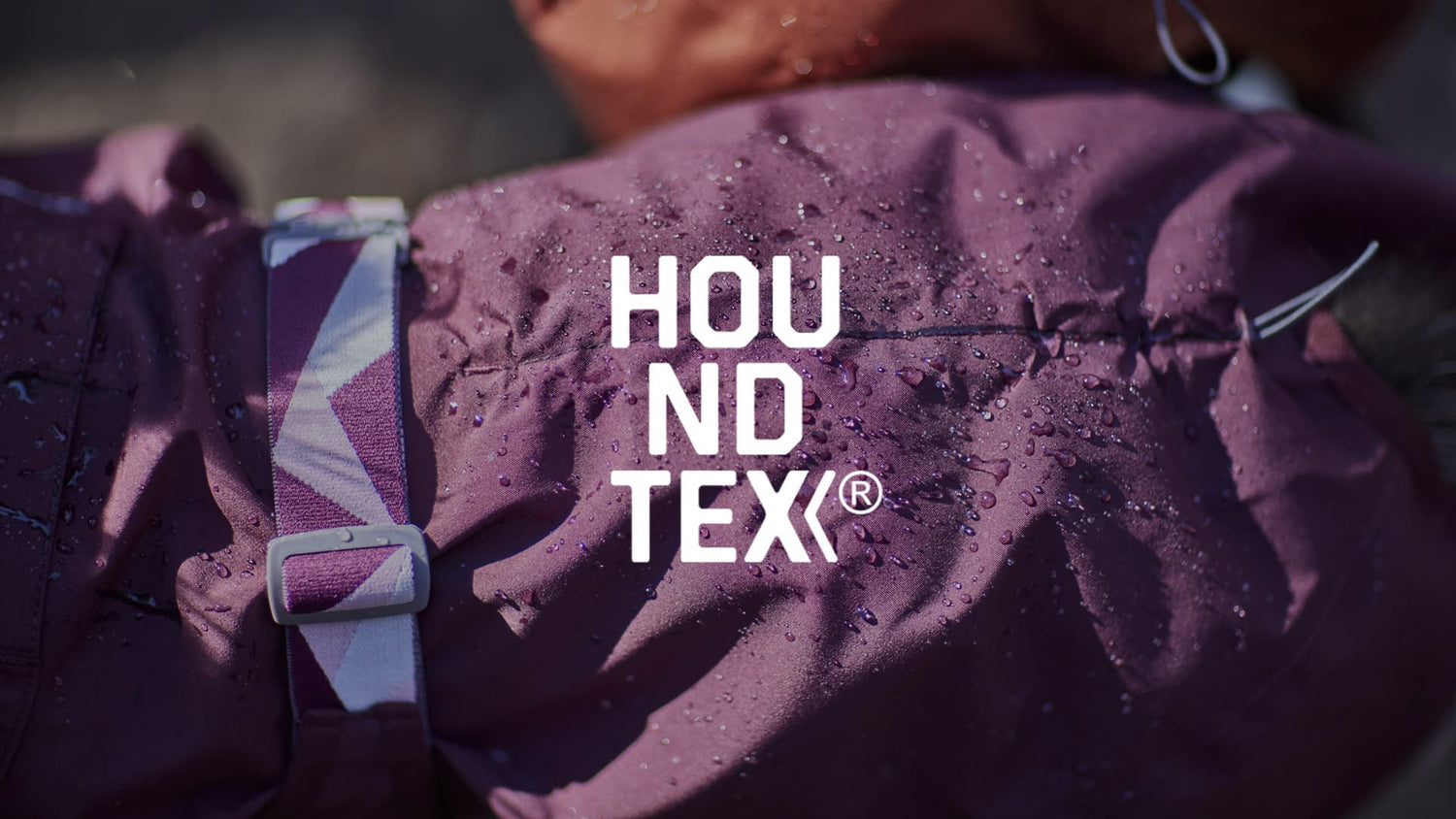Wenn das Fell allein nicht reicht: Wann ist ein Hundemantel sinnvoll?
Die meisten Hunde haben ihren Pelz immer dabei und sind dadurch ziemlich gut gegen Umwelteinflüsse geschützt. Aber der Schutz hat seine Grenzen: Mittlerweile haben sich Hunde aller Rassen über sämtliche Kontinente und Klimazonen verbreitet – unabhängig davon, wo sie ihren Ursprung haben.
Der Chihuahua beispielsweise hat seine Wurzeln in Mexiko und fühlt sich bei hohen Temperaturen sehr wohl. Wird es nass oder kalt, brauchen die Zwerge schnell zusätzlichen Schutz. Ein Alaskan Malamute hingegen blüht erst richtig auf, wenn die Temperaturen in Richtung Gefrierpunkt sinken.
Nicht nur die Rasse, auch die Größe, das Alter und der Gesundheitszustand deines Hundes wirken sich darauf aus, ab wann ein Hundemantel angebracht ist – und natürlich das Wetter. Deshalb haben wir in diesem Ratgeber für dich zusammengefasst, wann dein Vierbeiner einen Hundemantel anziehen sollte.
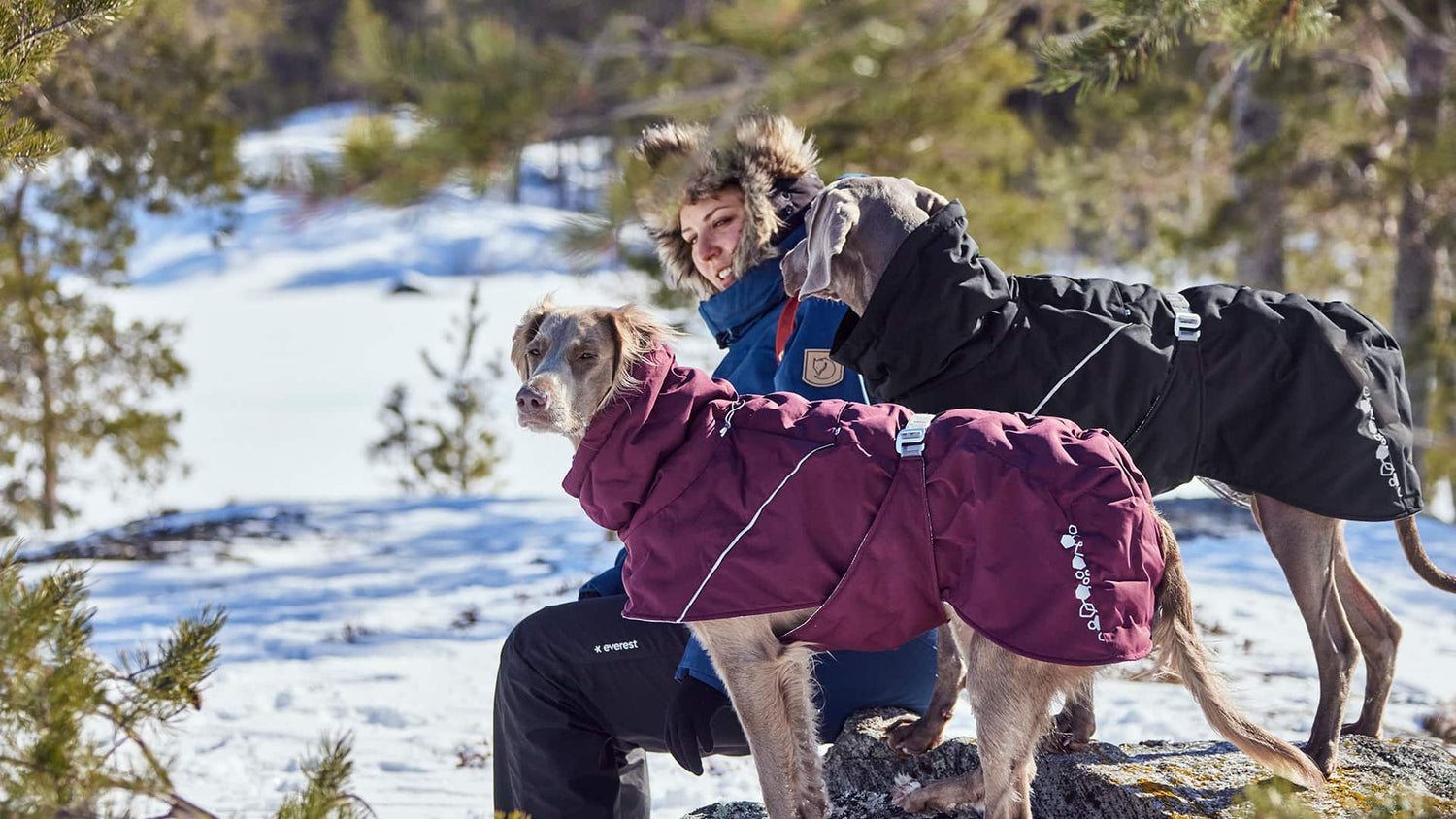
Wann braucht mein Hund einen Mantel?
Es gibt viele gute Gründe, deinem besten Freund zusätzlichen Schutz zu bieten.
Ein Hundemantel schützt deinen Vierbeiner vor Wind
Windiges Wetter kann besonders für kleine Hunde, Senioren und Welpen problematisch sein. Gegen starken Wind hat Körperwärme oft keine Chance, sodass dein Hund selbst bei milden Temperaturen zu frieren beginnt. Ein winddichter Hundemantel bietet in solchen Situationen zusätzlichen Schutz.
Hunde brauchen einen Mantel, wenn es regnet
Regen kann das Fell deines Hundes komplett durchnässen. Ein Hunde-Regenmantel oder ein wasserdichter Overall hält deinen Hund trocken, schützt seine Haut und sein Fell vor extremer Feuchtigkeit und reduziert das Risiko einer Unterkühlung. Das ist besonders wichtig, wenn ihr lang im Regen unterwegs seid oder dein Hund wenig Fell mit dünner Unterwolle hat.
Kleine Hunde profitieren besonders von einem Regenmantel: Ihr empfindliches, oft unbehaartes Bäuchlein ist nah am Boden und wird selbst dann nass und matschig, wenn der Regen schon aufgehört hat. Bei alten oder kranken Hunden ist zusätzlicher Schutz vor Nässe essentiell, um eine Erkältung zu vermeiden.
Ein weiterer Gewinner, wenn du deinen Hund vor Nässe und Matsch schützt, ist dein Zuhause – denn deine Böden und dein Sofa können nur so sauber sein wie dein Hund.
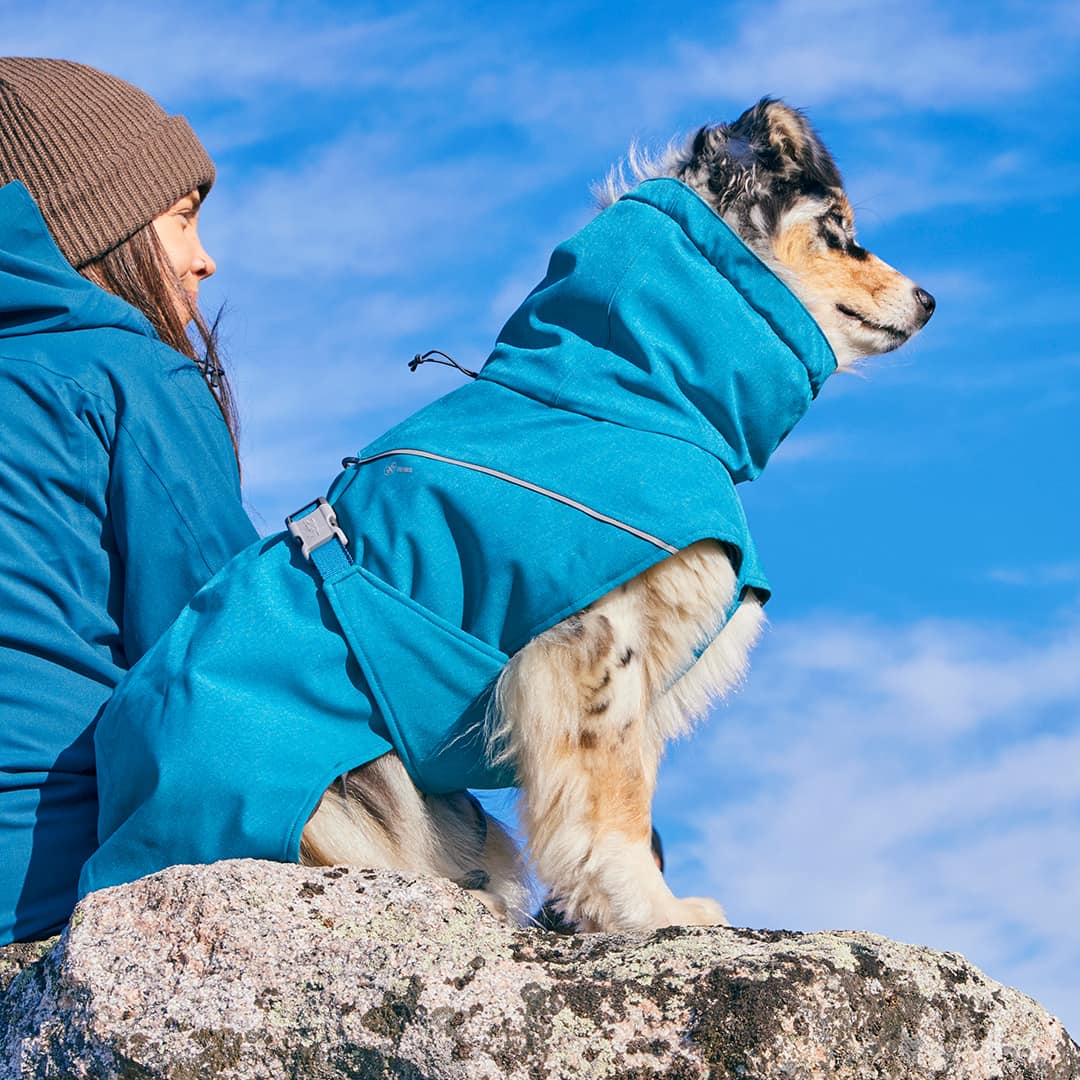
Expedition Parka II
Der Expedition Parka ist eine großartige Wahl für jedes Abenteuer bei kaltem Wetter für alle Hunde. Er bietet erweiterte Bewegungsfreiheit selbst für die wildesten Spielerinnen und Spieler.
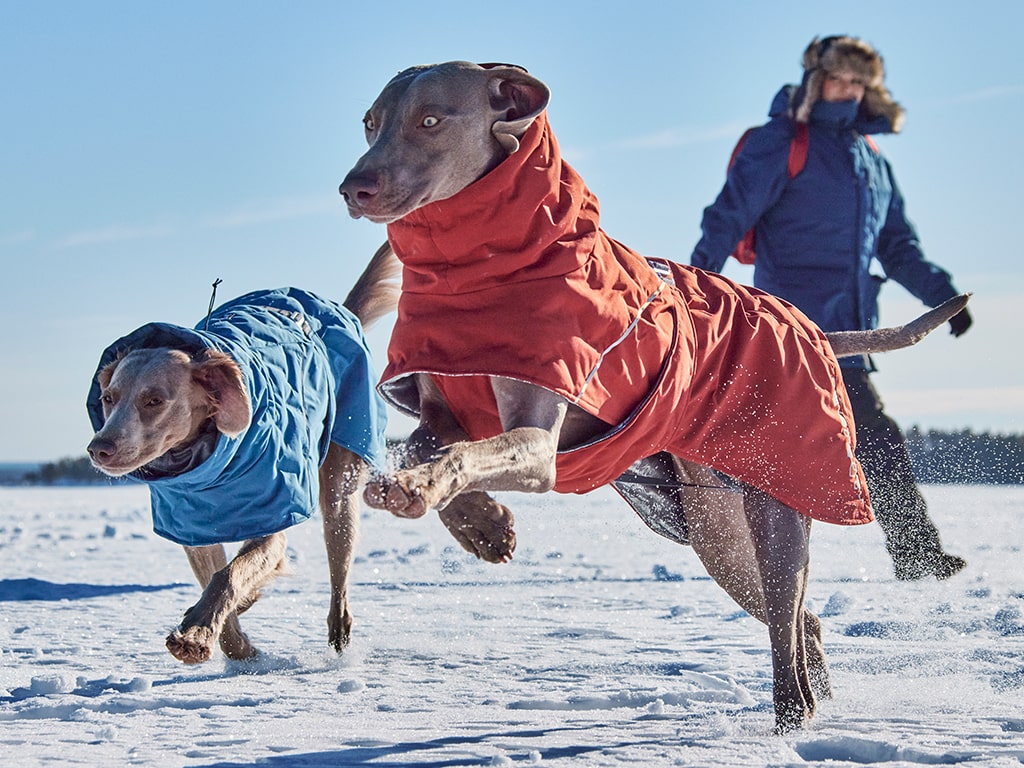
Extreme Warmer III ECO
Wir haben dem Extreme Warmer, einer unserer beliebtesten, umweltfreundlichen Winterjacken, ein Update verpasst: Sie bietet jetzt eine noch bessere Passform und Performance, sodass dein Hund und du selbst an den kältesten Wintertagen selbstbewusst nach draußen gehen können.
Der Extreme Warmer ECO ist für alle Hunde geeignet, besonders für Hobby- und Profi-Sportler, Senioren und alte kälteempfindliche Vierbeiner und natürlich für unsere kurzhaarigen und haarlosen besten Freunde, die eine Extraportion Wärme brauchen.
Nasses Wetter kann für Menschen und auch für Hunde unangenehm sein. Wenn dein Hund sich weigert, bei Regen das Haus zu verlassen und keinen Schritt aus der Tür macht, kann sich eine Hunde-Regenjacke lohnen. Regen oder Schnee können das Fell deines Hundes komplett durchnässen. Eine Hunde-Regenjacke oder ein wasserdichter Overall hält deinen Hund trocken, schützt seine Haut und sein Fell vor extremer Feuchtigkeit und reduziert das Risiko einer Unterkühlung. Das ist besonders wichtig für kleine Hunderassen und Hunde mit dünner Unterwolle. Zusätzlich hilft ein Mantel dabei, sowohl deinen Hund als auch dein Zuhause sauber zu halten: Du musst nicht nach jedem Spaziergang deinen gesamten Hund und/oder dein gesamtes Haus putzen, denn dein Hund trägt weniger Matsch nach Hause.
Windiges Wetter kann besonders für kleine Hunde, Senioren und Welpen problematisch sein. Gegen starken Wind hat Körperwärme oft keine Chance, sodass dein Hund selbst bei milden Temperaturen zu frieren beginnt. Eine winddichte Hundejacke bietet in solchen Situationen zusätzlichen Schutz.
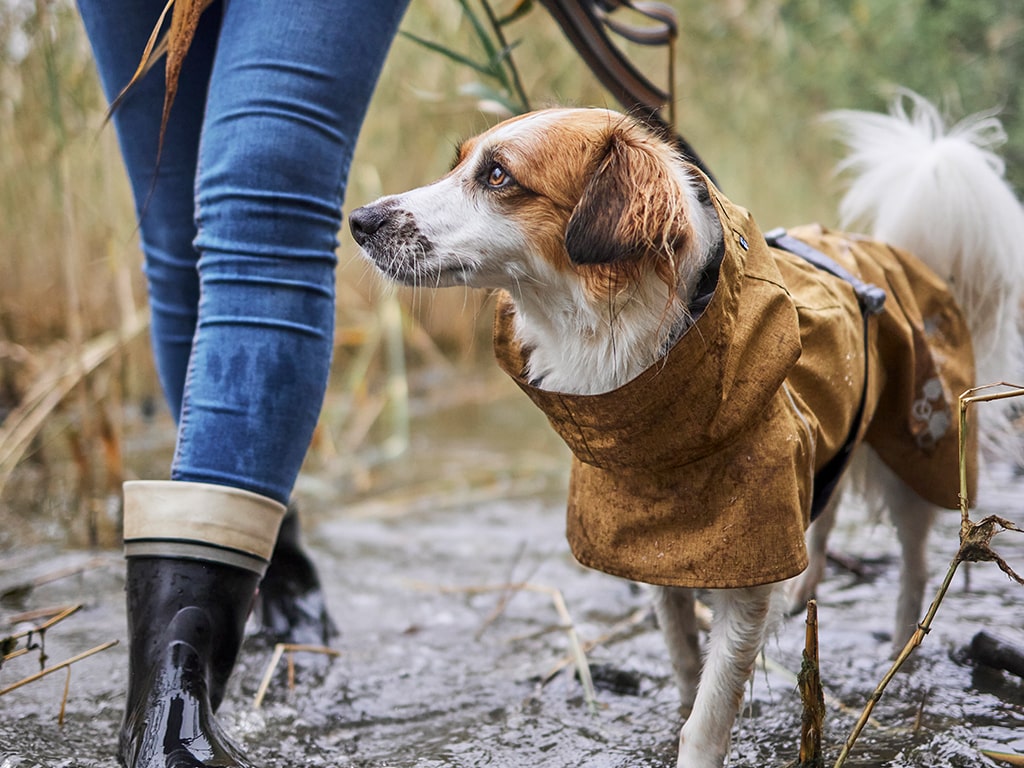
Monsoon Coat II ECO
Der Monsoon Coat ECO wurde designt, um Regen und Matsch in die Schranken zu weisen, und diese erneuerte Version ist dabei noch gnadenloser. Denn wir sehen das so: Je mehr Schutz Hunde haben, desto besser können sie die Natur bei jedem Wetter genießen.
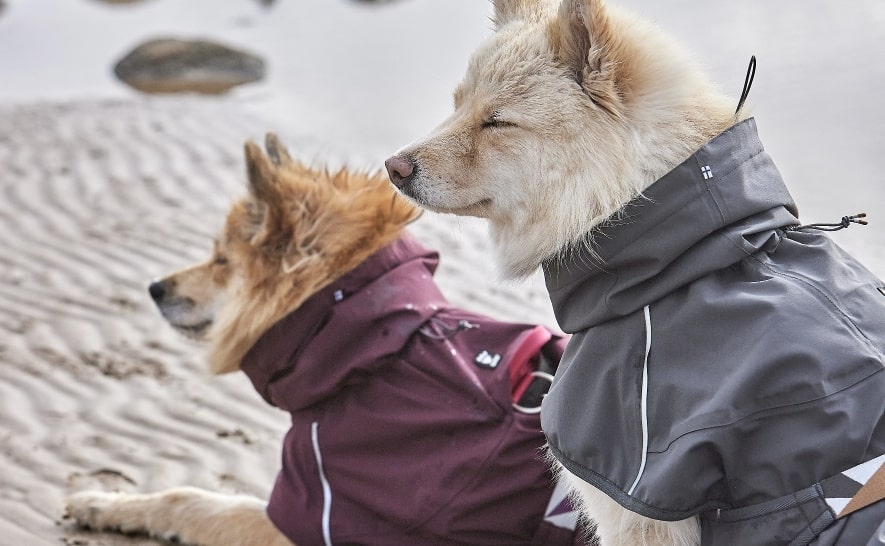
Mudventure Coat ECO
Im Regen und Matsch zu spielen kann richtig viel Spaß machen. Noch mehr mit dem Mudventure Coat ECO, denn er hält das Fell deines Hundes sauber. Der Mudventure Coat ist ungefüttert und daher federleicht und bequem – die ideale Hundejacke für Reisen, Camping sowie für den Rucksack oder die Handtasche. Bei Sommerregen ist das die perfekte Regenjacke für Hunde, die Schutz vor Wind und Nässe ohne zusätzliche Wärme brauchen.
Das Aktivitätslevel deines Hundes beeinflusst, wie viel Extrawärme er oder sie braucht. Weniger aktive, ruhigere Hunde kühlen schneller aus als ihre energiegeladenen Artgenossen. Es ist wichtig, diese individuellen Unterschiede zu bedenken, damit jeder Hund genau den Schutz bekommt, den er braucht.
Senioren oder Hunde, die sich von einer Krankheit oder Verletzung erholen, sind oft besonders kälteempfindlich. Ältere Hunde sind generell anfälliger, unabhängig von ihrer Rasse oder Fellbeschaffenheit, weil sie altersbedingt ihre Körpertemperatur oft schlechter aufrechterhalten können.
Für Senioren oder Hunde, deren Immunsystem aufgrund einer Krankheit oder Verletzung geschwächt ist, kann zusätzliche Wärme durch Hundebekleidung lebenswichtig sein. Hunde mit Arthritis profitieren ebenfalls von winddichten Jacken, die ihre Muskeln und Gelenke warm halten.
Welpen sind normalerweise unabhängig von Rasse und Felltyp kälteempfindlich, weil sie ihre Körpertemperatur noch nicht so gut selbst regulieren können. Kleine Welpen sollten nicht nur gegen Kälte, sondern auch gegen Regen und Wind geschützt werden. Nötigenfalls sollten sie nur kurz draußen bleiben, um nicht auszukühlen.
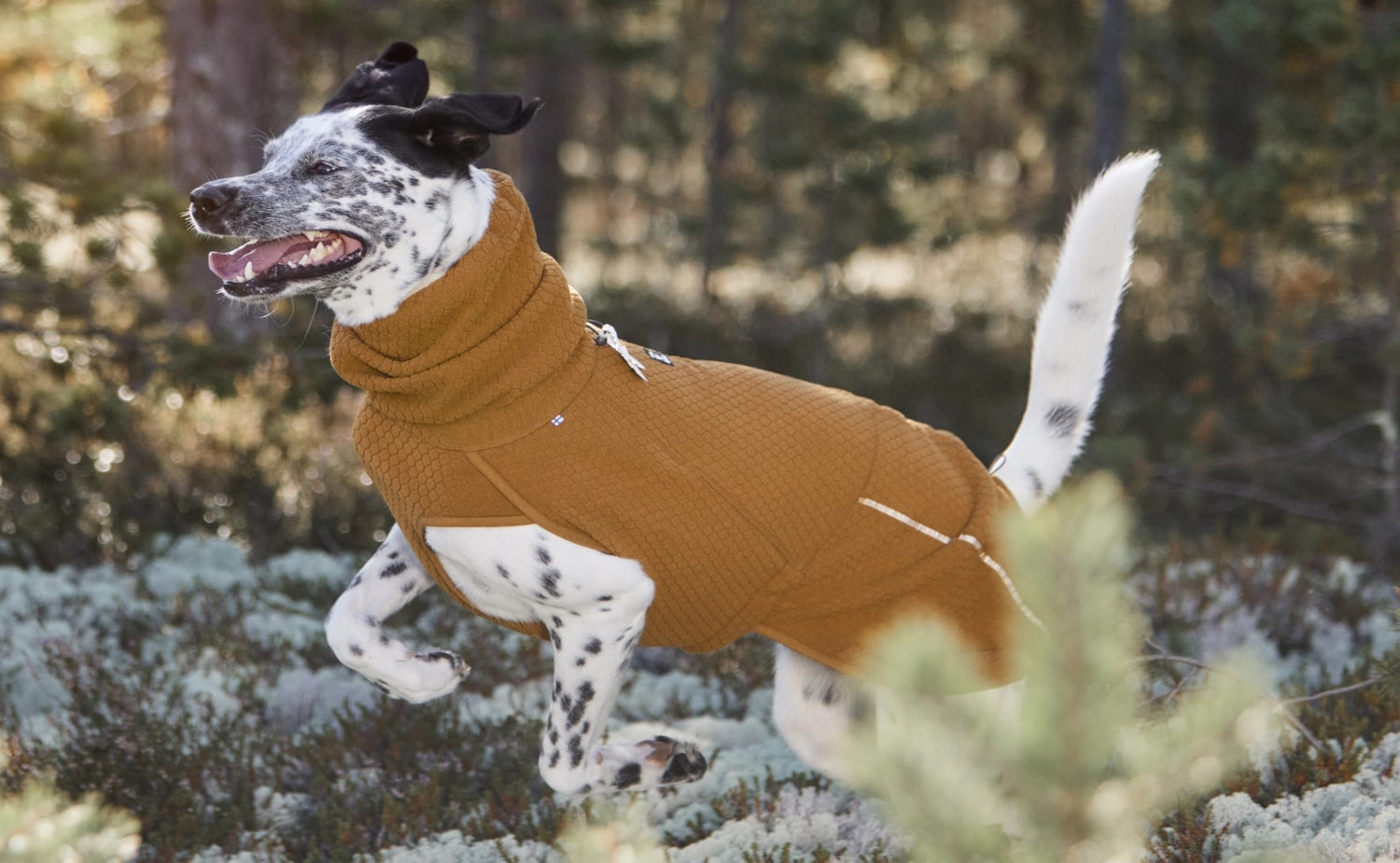
Wärmende Midlayer Hundejacke ECO
Insbesondere sportliche und aktive Hunde profitieren sehr von einer wärmenden Jacke. Es ist wichtig, die Muskeln deines Hundes geschmeidig und warm zu halten, wenn ihr beim Agility oder Obedience Training auf euren Auftritt wartet. Zusätzliche Wärme ist auch für ältere Hunde wichtig: Das kann helfen, schmerzende Gelenke zu beruhigen und sich einfacher zu bewegen.
Kurzhaarige und kleine Hunderassen sind bei kaltem, feuchtem Wetter anfälliger als größere Hunde mit dickem Fell. Rassen wie Podengo, Zwergpinscher und Französische Bulldogge sind dafür bekannt, dass sie aufgrund ihres kurzen Fells schneller frieren und deshalb im Winter und an kälteren Herbst- oder Frühlingstagen fast schon zwingend eine Jacke brauchen.
Kleine Hunderassen wie Yorkshire Terrier, Dackel, Jack Russell Terrier und ähnliche Rassen wie Bichon Frisé und Havaneser können ebenfalls von Hundemänteln profitieren, da sie durch ihre geringe Größe schneller Körperwärme verlieren.
Bestimmte dickfellige Hunderassen brauchen unter Umständen auch Jacken – zum Beispiel brauchen Berner Sennenhunde, Huskys oder Bernhardiner im Winter normalerweise keine zusätzliche Wärme, können an nassen Tagen aber eine Regenjacke brauchen, damit ihr dichtes Fell nicht durchnässt und schwer wird. Vergiss nicht, dass jeder Hund einzigartig ist und die Rasse alleine nicht unbedingt alles über die Bedürfnisse deines Hundes aussagt.
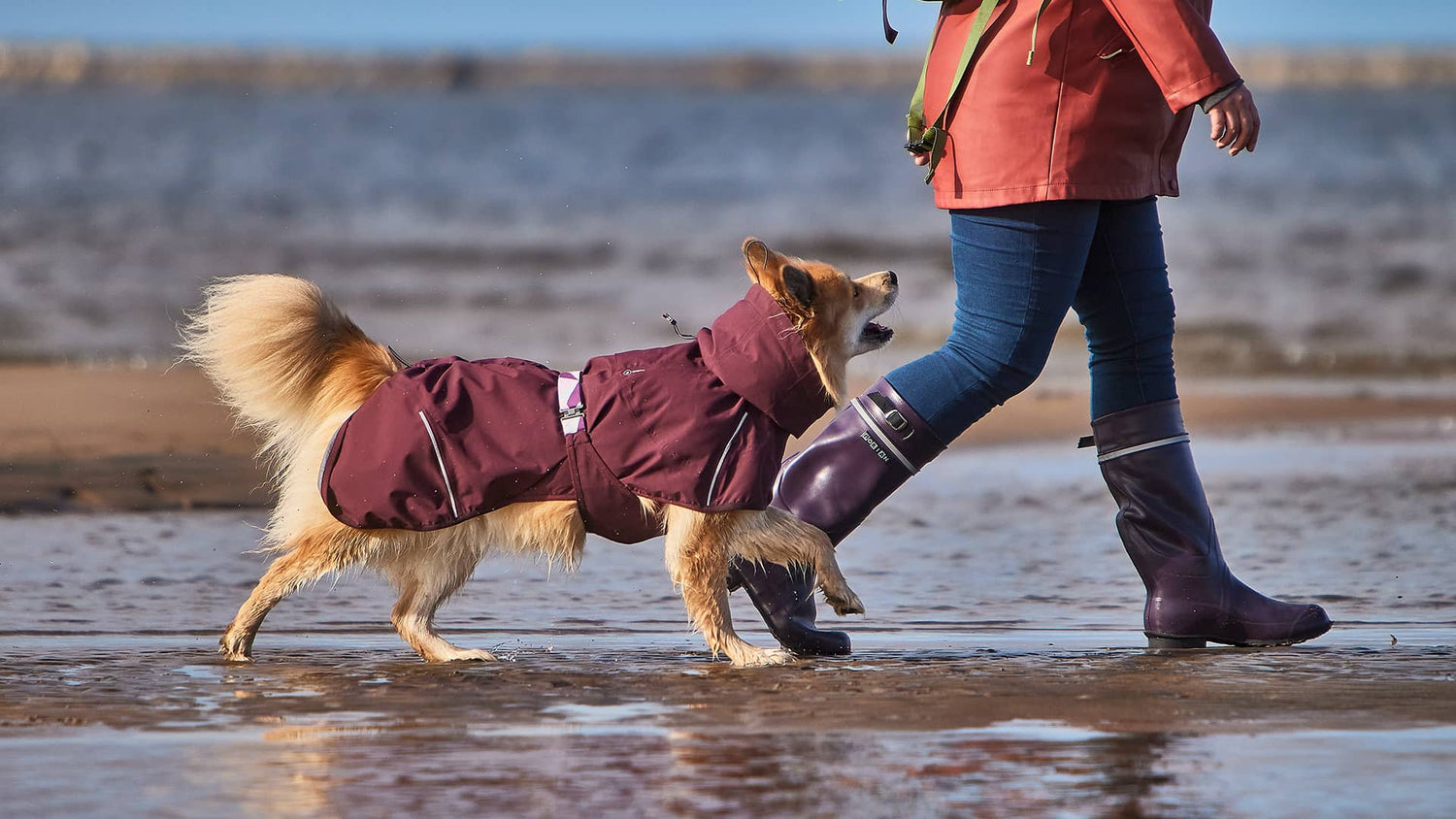
So wählst du den richtigen Mantel für deinen Hund
Die Wahl des richtigen Hundemantels kann auf den ersten Blick schwierig erscheinen, aber wenn du nur die folgenden paar Dinge beachtest, findest du garantiert die beste Option, die wie maßgeschneidert für die Bedürfnisse deines besten Freundes ist:
- Denk über eure Bedürfnisse und den Verwendungszweck nach, und wie du beides möglichst effektiv erfüllst. Ist es zum Beispiel dein Hauptanliegen, deinen Hund während des Winters warmzuhalten und vor Schnee und eisigem Wind zu schützen? Oder braucht dein Hund nur eine schützende Schicht vor Regen und Wind? Wie wichtig ist zusätzliche Sichtbarkeit bei schlechten Lichtverhältnissen?
> Kurzhaarige Hunde in kalten Regionen können einen hochwertigen Wintermantel gut gebrauchen, aber für den Schutz vor Regen investierst du besser in hochgradig wasserdichte Regenbekleidung für Hunde.
- Achte auf eine gute Passform, um Komfort und Bewegungsfreiheit sicherzustellen. Zu enge Kleidung kann die Bewegungsfreiheit einschränken, wodurch sich dein Hund unwohl fühlt. Eine zu lockere Passform hingegen kann deinen Hund nicht ordentlich schützen, wodurch der Sinn von Hundekleidung komplett verfehlt ist.
- Miss die Rückenlänge, den Brustumfang und den Halsumfang deines Hundes vor dem Kauf ab, damit du wirklich die richtige Größe kaufst. Bei Jacken und Overalls ist die Rückenlänge ausschlaggebend für die Größe.
- Bei Overalls wählst du am besten die kleinere Größe, falls dein Hund zwischen zwei Größen liegt.
- Bei Jacken wählst du hingegen besser die größere Variante, wenn die Rückenlänge verstellbar ist.

